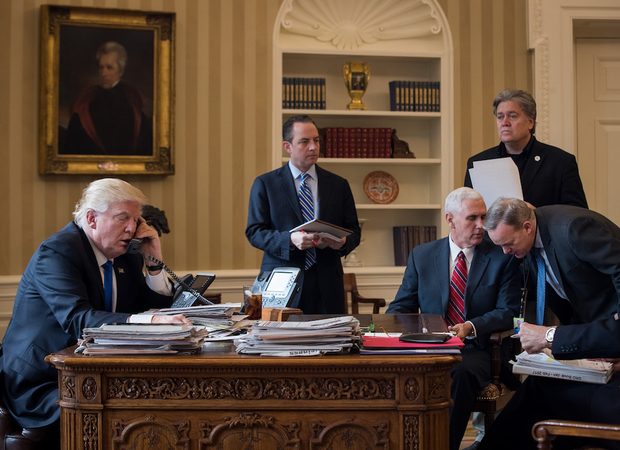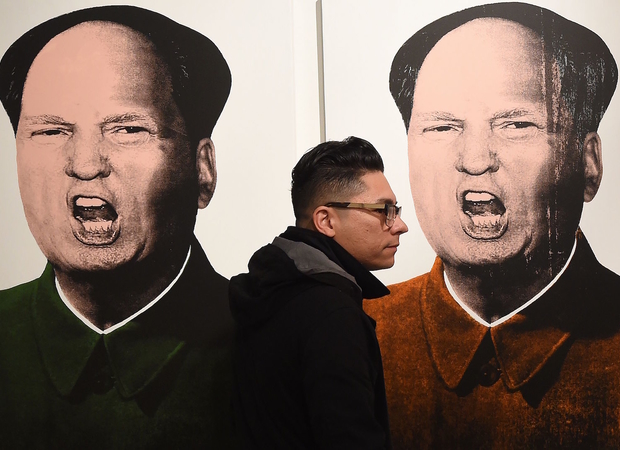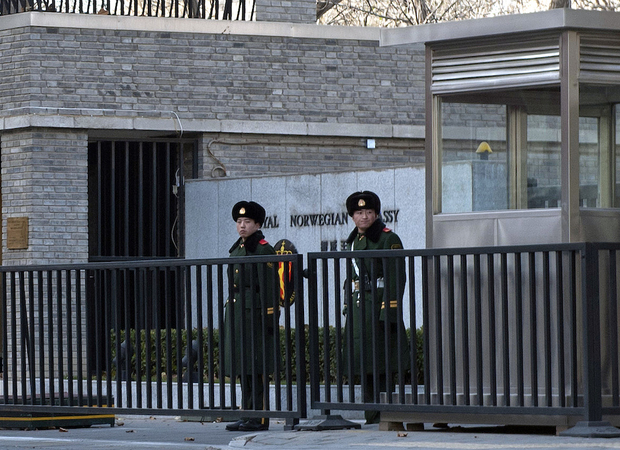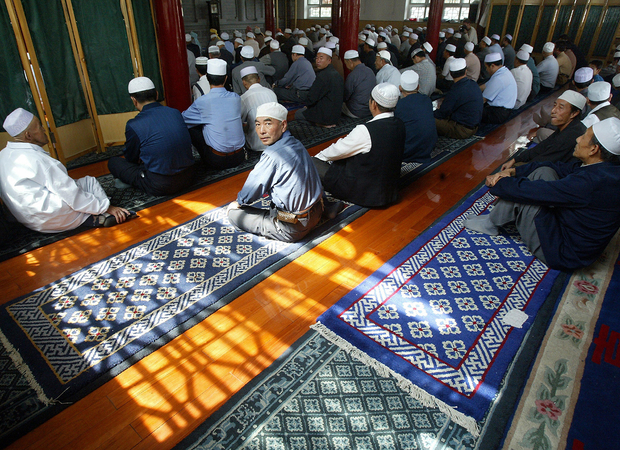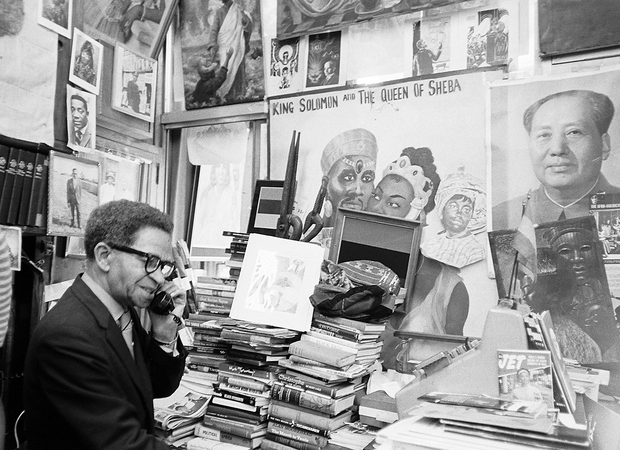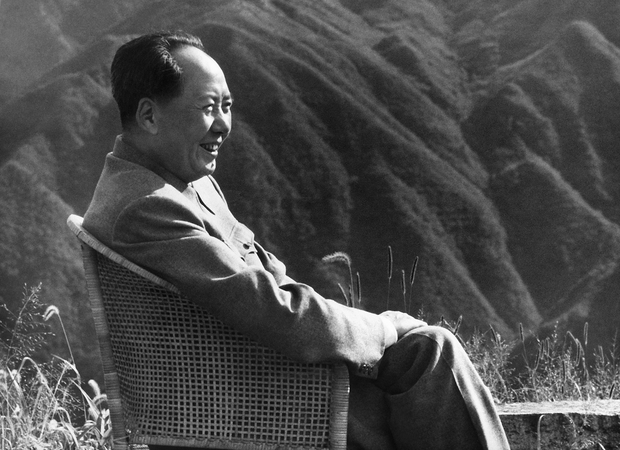‘The President Always Gets Something’: Spicer Suggests Trump Gained Concession from China
Before taking power Trump hinted he might reverse the US’s stance on Taiwan but later back-pedaled, prompting speculation he had capitulated to Beijing
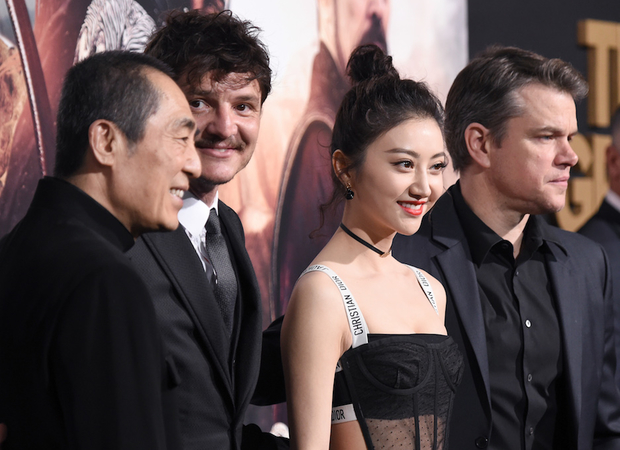
Can China Expand its Beachhead in Hollywood?
With The Great Wall, a classic army vs. monsters tale, director Zhang Yimou has brought America the most expensive Chinese film ever created. The movie may be backed by a Hollywood studio and it may star no less an American icon than...
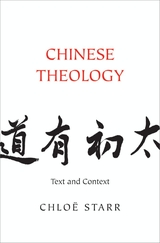
Chinese Theology
In this groundbreaking and authoritative study, Chloë Starr explores key writings of Chinese Christian intellectuals, from philosophical dialogues of the late imperial era to micro-blogs of pastors in the 21st century. Through a series of close textual readings, she sheds new light on such central issues in Chinese theology as Christian identity and the evolving question of how Christians should relate to society and state.
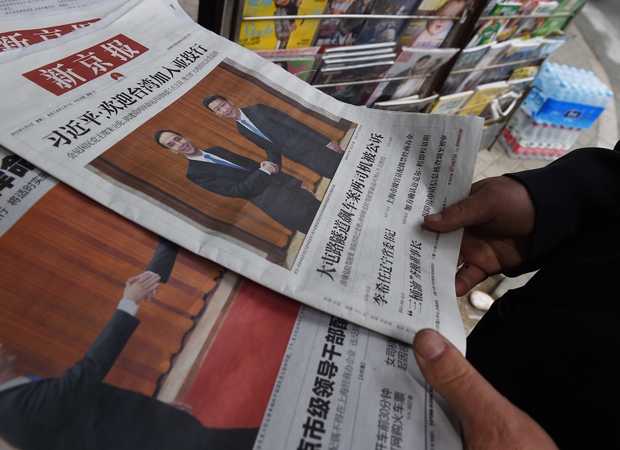
Trump Will Honor ‘One China’ Policy
from Carnegie ChinaPresident Trump agreed to honor the U.S. “one China” policy in his first phone call with President Xi Jinping since taking office, providing the basis for bilateral relations to move forward. Shortly after the February 9 call, Paul Haenle spoke...
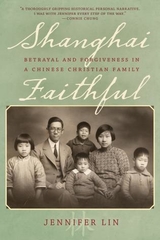
Shanghai Faithful
Within the next decade, China could be home to more Christians than any other country in the world. Through the 150-year saga of a single family, this book vividly dramatizes the remarkable religious evolution of the world’s most populous nation. Shanghai Faithful is both a touching family memoir and a chronicle of the astonishing spread of Christianity in China. Five generations of the Lin family—buffeted by history’s crosscurrents and personal strife—bring to life an epoch that is still unfolding.
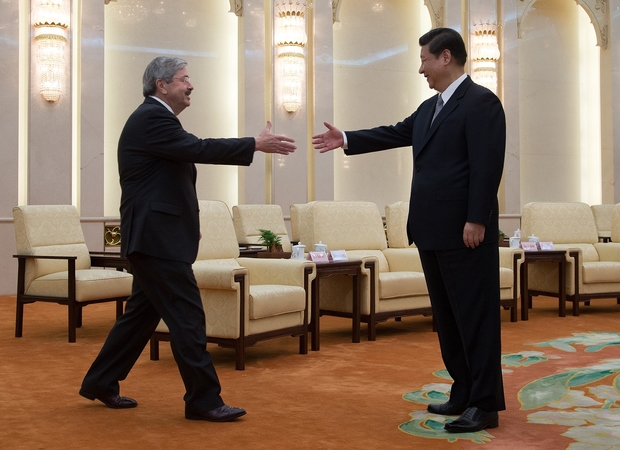
Can the New U.S. Ambassador to China See Xi Jinping for Who He Really Is?
When the Senate Foreign Relations Committee holds confirmation hearings on Terry Branstad’s nomination to be Ambassador to China, the Iowa Governor is sure to be asked about the positions of the president who nominated him. I hope...
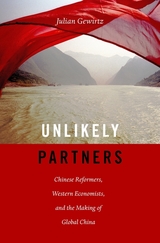
Unlikely Partners
Unlikely Partners recounts the story of how Chinese politicians and intellectuals looked beyond their country’s borders for economic guidance at a key crossroads in the nation’s tumultuous 20th century. Julian Gewirtz offers a dramatic tale of competition for influence between reformers and hardline conservatives during the Deng Xiaoping era, bringing to light China’s productive exchanges with the West.
A Chinese Nuclear Site, Hidden in a Mountain, Is Reborn as a Tourist Draw
Fifteen years ago, the local government announced that inside the hollowed-out mountain lay the remnants of what was once one of China’s most ambitious military infrastructure projects: the top-secret 816 nuclear plant.
Scientists Discover Prehistoric Giant Otter Species in China
Six million years ago, giant otters weighing more than 100 pounds lived among birds and water lilies in the wooded wetlands of China’s Yunnan province.
Can Donald Trump Break Beijing’s ‘One China’ Obsession?
Through force and diplomacy, many renowned figures have tried to divide the country, and all have failed. Still, the new U.S. president seems to want the issue back on the table and, if so, he has a steep, historic hill to climb
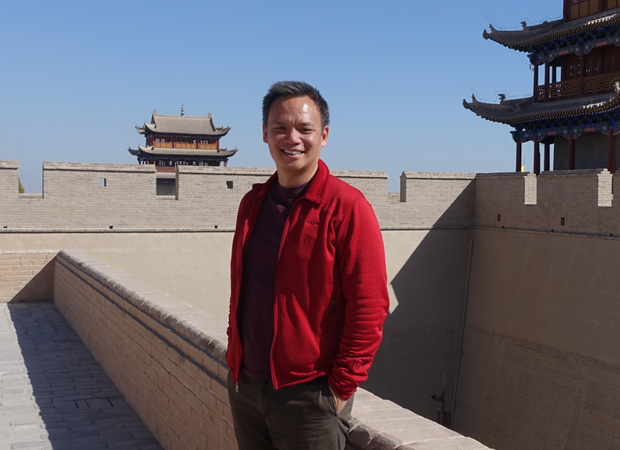
The State of Journalism in China—Ed Wong’s Exit Interview
from Sinica PodcastEdward Wong became a reporter for The New York Times in 1999. He covered the Iraq war from Baghdad from 2003 to 2007, and then moved to Beijing in 2008. He has written about a wide range of subjects in China for the ...
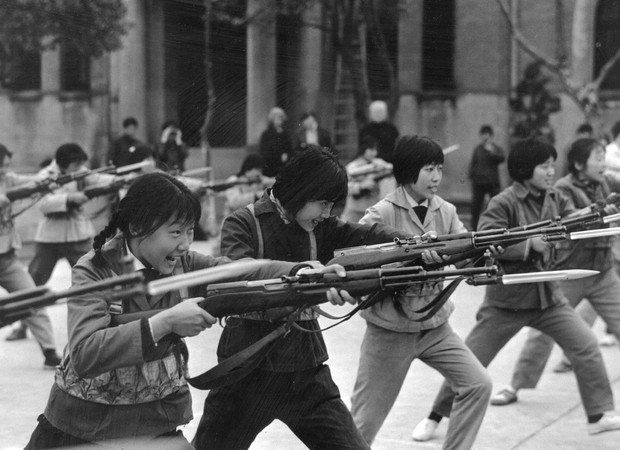
When the Chinese Were Unspeakable
from New York Review of BooksThe Xiao River rushes deep and clear out of the mountains of southern China into a narrow plain of paddies and villages. At first little more than an angry stream, it begins to meander and grow as the basin’s 63 other creeks and...
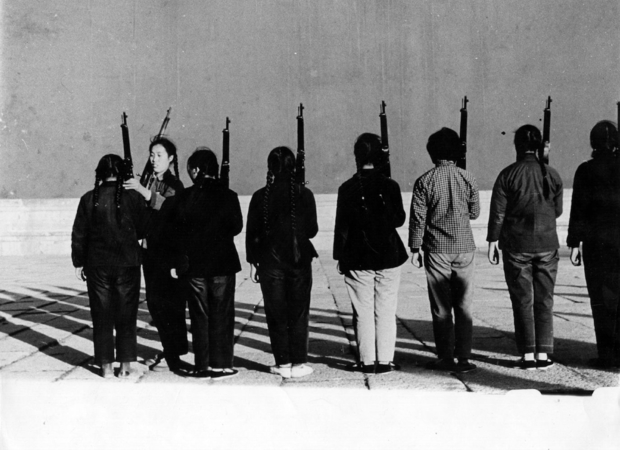
China’s Hidden Massacres: An Interview with Tan Hecheng
from New York Review of BooksTan Hecheng might seem an unlikely person to expose one of the most shocking crimes of the Chinese Communist Party. A congenial 67-year-old who spent most of his life in southern Hunan province away from the seats of power, Tan is...
China, Fanning Patriotism, Adds Six Years to War with Japan in History Books
For generations, the “Eight-Year War of Resistance Against Japanese Aggression” has been ingrained in the minds of Chinese schoolchildren. Now the war is getting a new name, and an extended time frame.
History Shows Beijing Won’t Budge an Inch on Taiwan
Trump might want to use the island as a bargaining chip—but for China, it’s a matter of principle
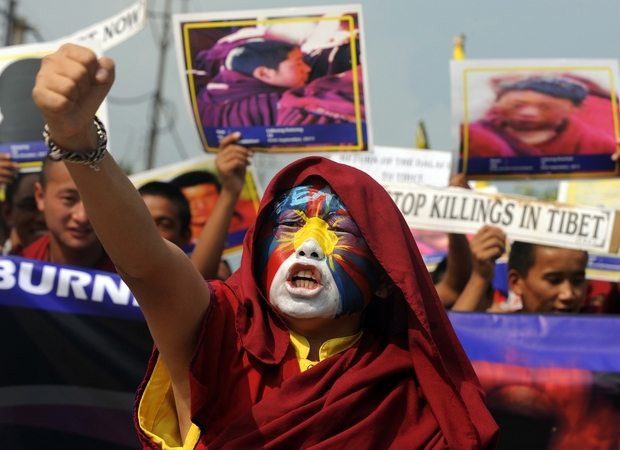
How Tibet Is Being Crushed—While the Dalai Lama Survives
from New York Review of BooksIf you read every page of Tsering Woeser’s latest book and skip the first and last chapters of Tsering Topgyal’s, the ultimate message about the situation in Tibet is often the same. Chinese rule, writes Woeser, is no less than “...
Seeing 2016 Through Eyes on China
In June 2015, a couple dozen China-based photographers—some Chinese, some not—founded the Instagram account Eyes on China. Their goal, as member photographer Gilles...
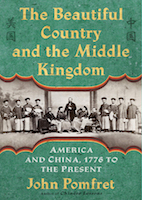
The Beautiful Country and the Middle Kingdom
From the clipper ships that ventured to Canton hauling cargos of American ginseng to swap for Chinese tea, to the U.S. warships facing off against China’s growing navy in the South China Sea, from the Yankee missionaries who brought Christianity and education to China, to the Chinese who built the American West, the United States and China have always been dramatically intertwined. For more than two centuries, American and Chinese statesmen, merchants, missionaries, and adventurers, men and women, have profoundly influenced the fate of these nations.

Crashing the Party
It’s 1983. Scott Savitt, one of the first American exchange students in Beijing, picks up his guitar and begins strumming “Blackbird.” He’s soon surrounded by Chinese students who know every word to every Beatles song he plays. Savitt stays on in Beijing, working as a reporter for Asiaweek Magazine. The city’s first nightclubs open; rock ‘n’ roll promises democracy. Promoted to foreign correspondent for The Los Angeles Times and then United Press International, Savitt finds himself drawn into China’s political heart.

U.S.-China Relations As a Cycle of ‘Rapturous Enchantment’ and ‘Deep Disappointment’
from Asia BlogIn 1872, China’s imperial government began sending teenage boys to the United States to study science and technology. After a series of “humiliating” military defeats at the hands of technologically superior foreign powers, China’...

Should Washington Recalibrate Relations with Taipei?
On Friday, Donald Trump shocked the China-watching world when news broke that he had spoken on the phone to Taiwan President Tsai Ing-wen. The call was remarkable not for its content—Tsai’s office said she told Trump she hoped the United States “...
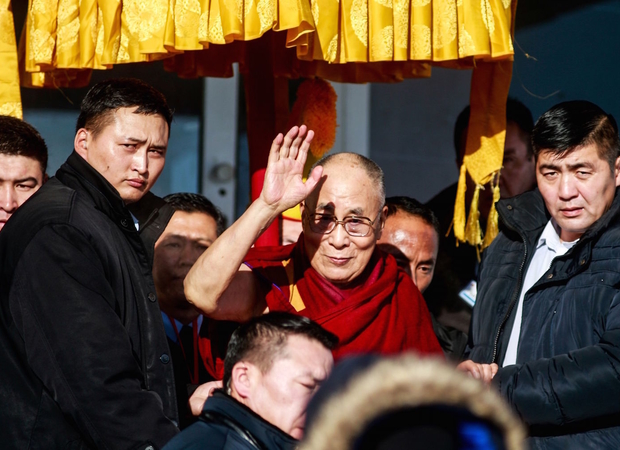
How Do You Stand up to China? Ask Mongolia
The day before the Dalai Lama’s November 18 trip to Mongolia, Beijing issued a “strong demand” to its neighbor to cancel the visit...
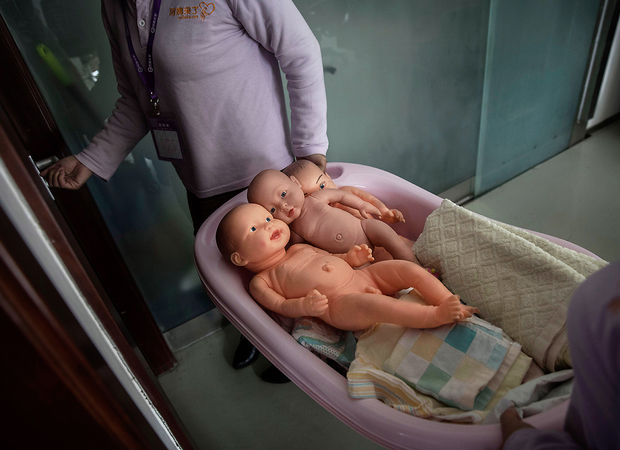
Why I’m Giving Away My Book in China
After a decade covering Asia for The Wall Street Journal, I devoted three years of my life to researching and writing a book about China’s one-child policy, One Child: The Story of China’s Most Radical Experiment. This month, I’m giving away the...

The Anti-Mainland Bigotry of Hong Kong’s Democracy Movement
Given the political earthquake that occurred on November 8, the recent political and constitutional crisis in Hong Kong now seems comparatively diminished in significance. At the time, however, it was widely seen as—and continues...
Stuck at the Bottom in China
If the Chinese government is serious about fostering a stable and harmonious society, it must address limits on social mobility before it’s too late
Castro’s Death a Reminder in China of Changed Communist Axis
China and Cuba frequently nod to their shared ideological history, but relations revolve more around developing beach resorts or Chinese telecoms investments
Animosity in a Burmese Hub Deepens as Chinese Get Richer
Locals view Chinese as taking advantage of Mandalay’s location and resources. Chinese view locals as beneath them, slow at business and making money.
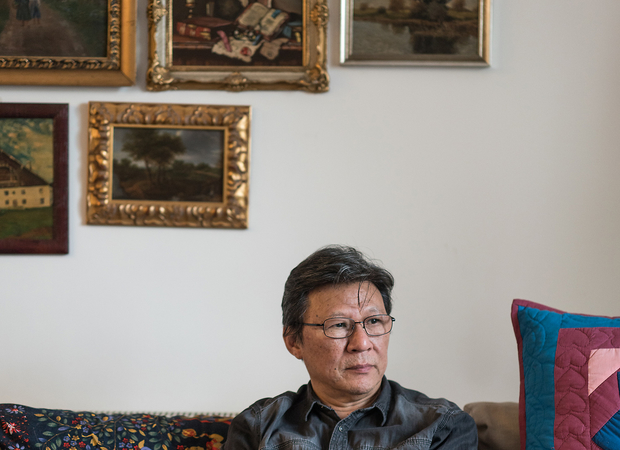
Inside and Outside the System: Chinese Writer Hu Fayun
from New York Review of BooksOver the summer, I traveled to Wuhan to continue my series of talks with people about the challenges facing China. Coming here was part of an effort...
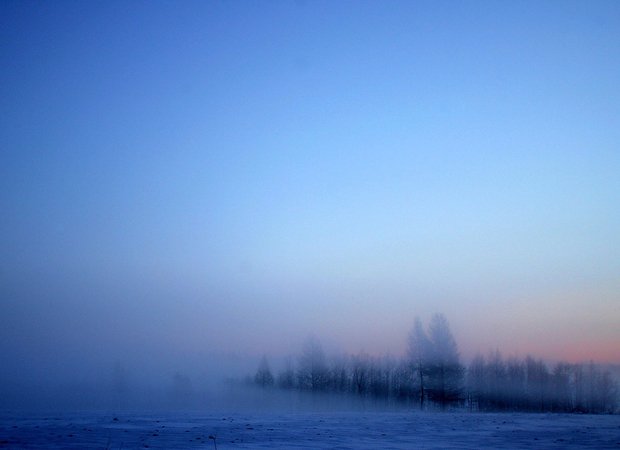
A Magician of Chinese Poetry
from New York Review of BooksSome people, and I am one, feel that Tang (618–907 CE) poetry is the finest literary art they have ever read. But does one need to learn Chinese in order to have such a view, or can classical Chinese poetry be adequately...
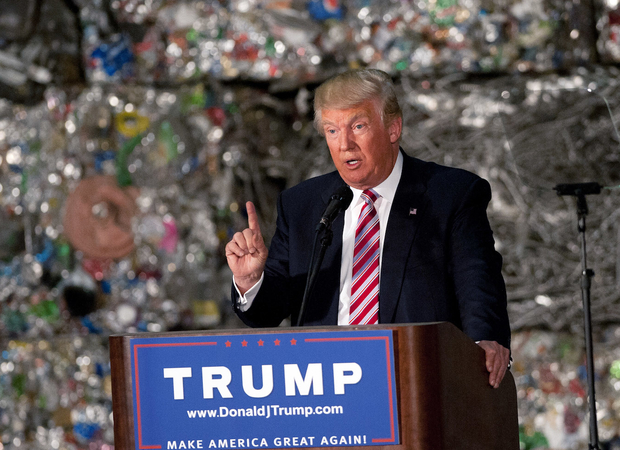
Is the Trump Victory a Blow to Globalization?
The 2016 U.S. presidential election ended with the surprise victory of property mogul Donald J. Trump. An outsider without a political track record, Trump defied predictions by most polls, pundits, and political observers when he defeated Hillary...
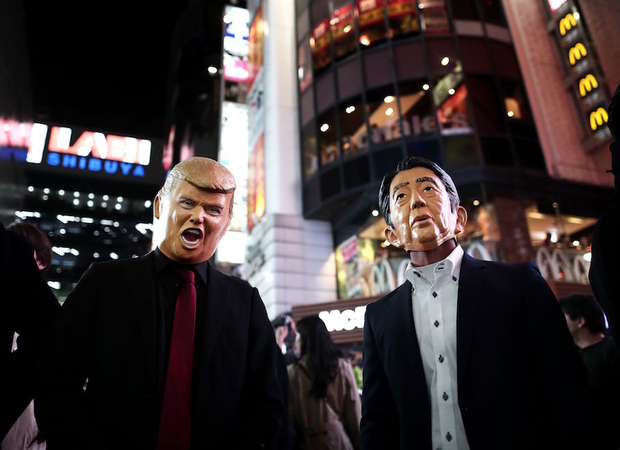
Should China’s Neighbors Rely on the U.S. for Protection?
President-elect Donald Trump campaigned on a platform of neo-isolationism that could see many traditional U.S. allies in Asia left without Washington’s support in the newly roiled waters of the South- and East China Seas. What will the...
With Odes to Military March, China Puts Nationalism into Overdrive
President Xi has been making the case for a “new long march,” using the anniversary to rally the public and warn against creeping complacency
For Chinese Women, a Surname is Her Name
Keeping a surname is not an expression of marital equality, but of powerful patriarchal values. A married woman continued to be identified by her father’s lineage.
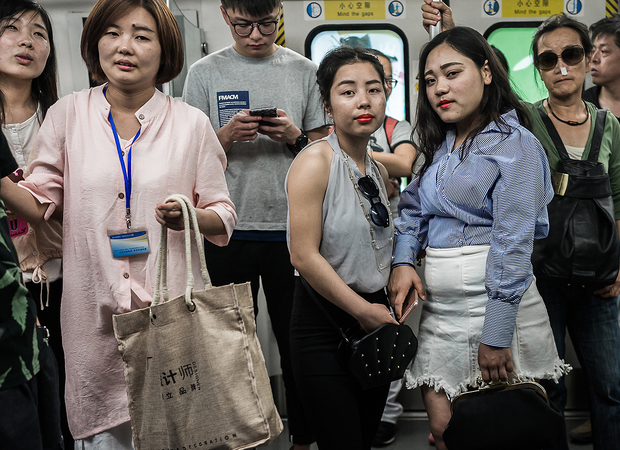
Dongbei’s Last Match Factory, Capital Straphangers, Retracing the Long March...
from Yuanjin PhotoIn October, several publications marked the 80th Anniversary of the Chinese Communists’ Long March. We have chosen two stories that revisited this event and that were standouts, visually. Elsewhere, photographers...
In Xi’s China, Everything Old is New Again
Eighty years after the end of the Long March, a Communist leader asks for another one. What is he really seeking?
A Plea to Britain: Don’t Forget Tibet in Your Dealings With China
Britain has a fine history of upholding the democratic values of Tibet. It must do once again as it negotiates business and trade ties with Beijing
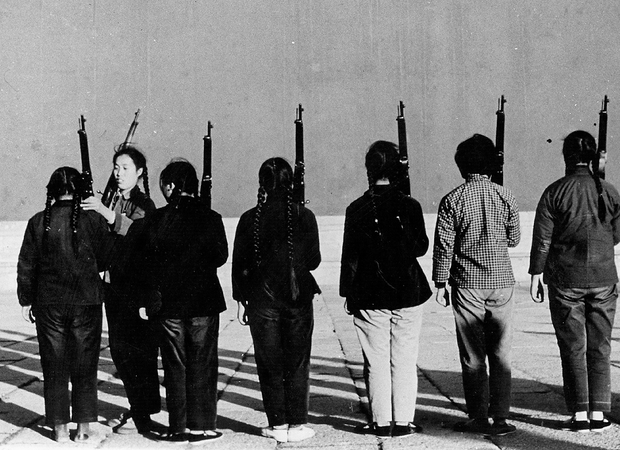
China: The Virtues of the Awful Convulsion
from New York Review of BooksFor decades, Beijing’s Beihai Park has been one of the city’s most beloved retreats—a strip of green around a grand lake to the north of the Communist Party’s leadership compound, its waters crowded with electric rental boats shaped like ducks...
Researcher Uncovers How Victims of China’s Cultural Revolution Really Died
Her persistence has pierced the official silence enforced by the Chinese government. As time goes on, families of those who died are more willing to open up

The Consequences of the One-Child Policy Will Be Felt for Generations
from Sinica PodcastThe first day of 2016 marked the official end of China’s one-child policy, one of the most controversial and draconian approaches to population management in human history. The rules have not been abolished but modified, allowing...
Delia Davin Obituary
A pioneer of Chinese women’s studies who avoided the stereotypes offered by the communist regime and its critics
Police Recover 300 Million Yuan Worth of Stolen Sichuan Relics
The two-year operation ends with 70 arrests and breakup of 10 criminal gangs
Discoveries May Rewrite History of China’s Terracotta Warriors
Finds at the famous tomb complex point to influences from abroad and a blood-soaked succession after the death of China's first emperor
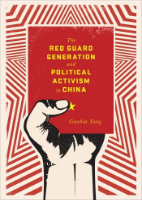
The Red Guard Generation and Political Activism in China
Raised to be “flowers of the nation,” the first generation born after the founding of the People’s Republic of China was united in its political outlook and ambitions. Its members embraced the Cultural Revolution of 1966 but soon split into warring factions. Guobin Yang investigates the causes of this fracture and argues that Chinese youth engaged in an imaginary revolution from 1966 to 1968, enacting a political mythology that encouraged violence as a way to prove one’s revolutionary credentials.

The Age of Irreverence
The Age of Irreverence tells the story of why China’s entry into the modern age was not just traumatic, but uproarious. As the Qing dynasty slumped toward extinction, prominent writers compiled jokes into collections they called “histories of laughter.” In the first years of the Republic, novelists, essayists, and illustrators alike used humorous allegories to make veiled critiques of the new government. But, again and again, political and cultural discussion erupted into invective, as critics gleefully jeered and derided rivals in public.
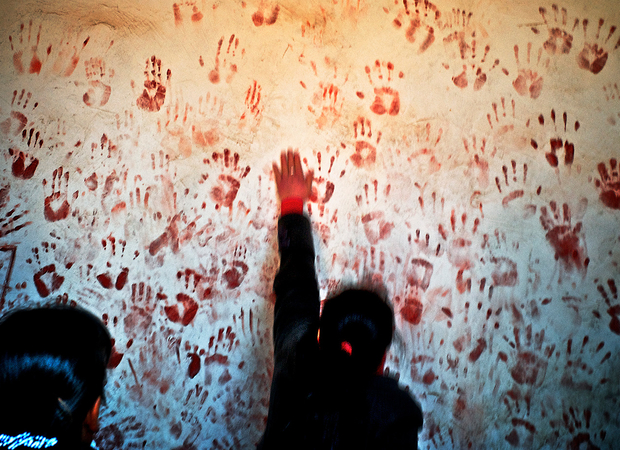
Is the Growing Pessimism About China Warranted?
from Washington QuarterlyThere are few more consequential questions in world affairs than China’s uncertain future trajectory. Assumptions of a reformist China integrated into the international community have given way in recent years to serious concerns about the nation...
Fate Catches Up to a Cultural Revolution Museum in China
The museum was covered up and shut down in the spring, a few weeks before the 50th anniversary of the start of the Cultural Revolution.
‘Botched’ Repair to China’s Great Wall Inspires Outrage
The shoddy paving over of a stretch of the Wall criticized for effacing the ancient monument
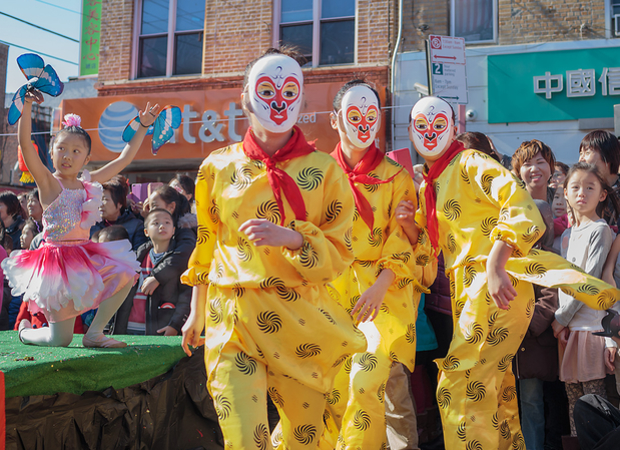
African Migrants in Guangzhou, Forgetting, Family Planning’s Fate, and More...
from Yuanjin PhotoPhotographing the aftermath of catastrophic events is challenging—one that photographer Mu Li handles with creativity and grace looking back at the chemical explosion in Tianjin that damaged as many as 17,000 homes August 12, 2015. Another...
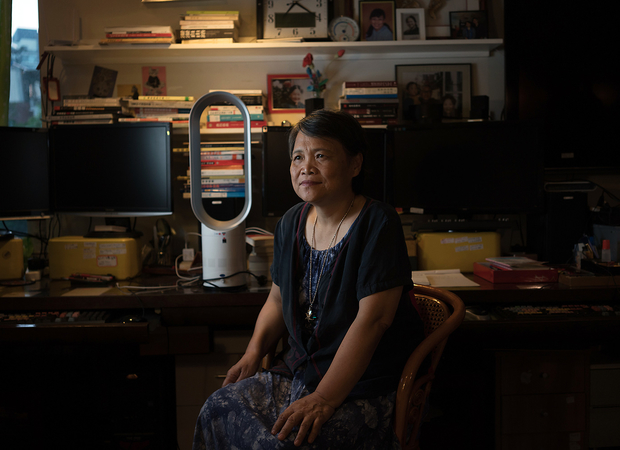
The People in Retreat
from New York Review of BooksAi Xiaoming is one of China’s leading documentary filmmakers and political activists. Since 2004, she has made more than two dozen films, many of them long,...





